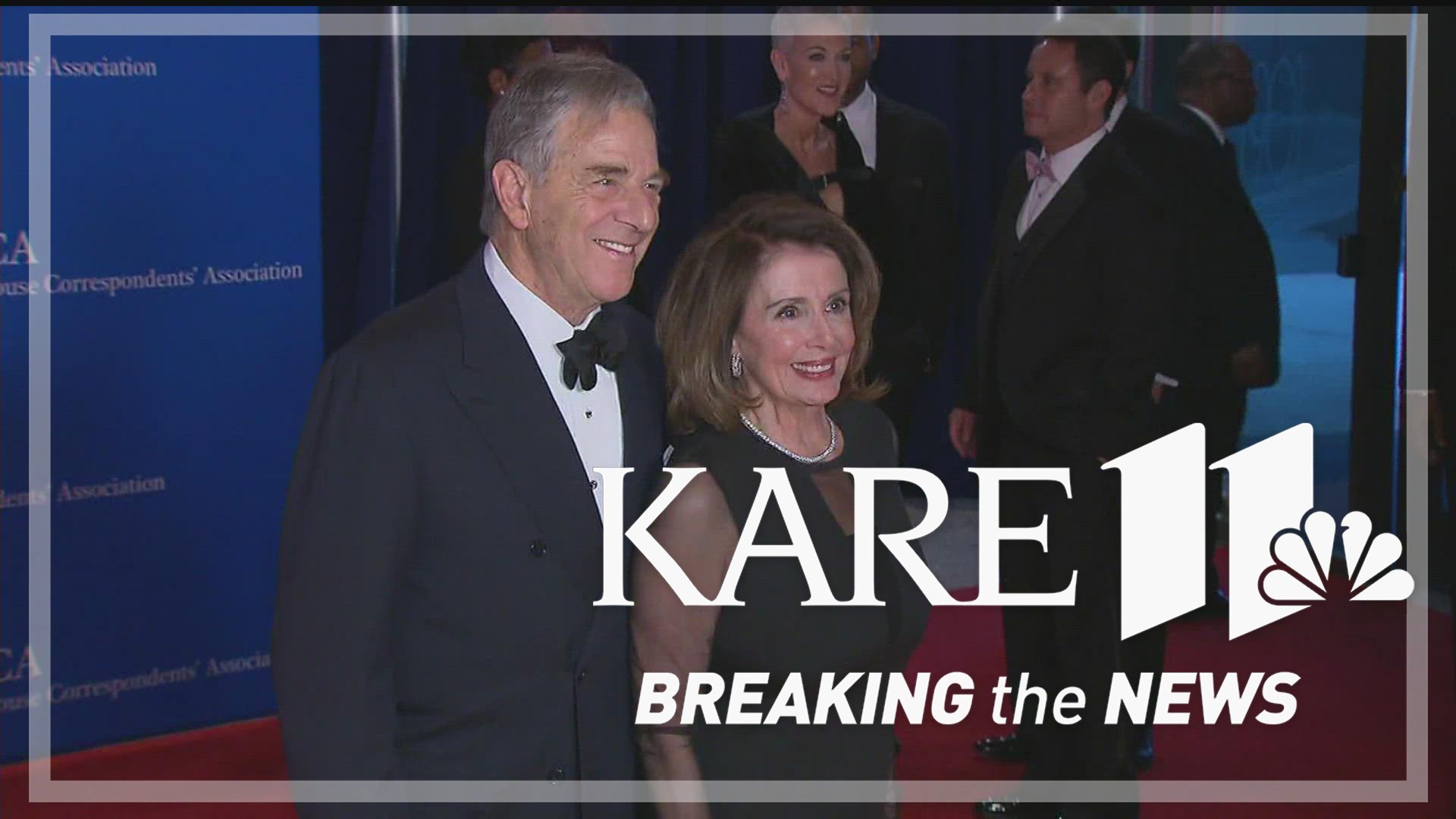MINNEAPOLIS — On the same day that police investigate the motive behind a brutal attack on the husband of Nancy Pelosi, federal prosecutors announced that a man pleaded guilty for threatening the life of a different California representative.
The two events are just the most recent examples of the growing concern about the safety of our elected leaders, especially as a contentious election approaches.
According the U.S. Capitol Police, threats against members of Congress have grown from 3,939 in 2017 to 9,625 in 2021.
"Because it's security, (members of Congress) don't like to talk about it," said Russ Choma, who covers money in politics for Mother Jones. "They don't like to talk about how much money they're spending. They don't like to talk about what measures they're taking because that itself could compromise the security."
Though security isn't widely discussed, Choma says more and more security spending is showing up on campaign finance reports.
He says the added expenditures started popping up after the 2011 shooting targeting an Arizona political event that injured then-Representative Gabby Giffords and killed six others. He says spending increased again after the 2017 shooting targeting a Republican softball practice that injured Representative Steve Scalise.
"They started making the justification that, part of being an American politician is the possibility that you might be in danger," he said. "And then after January 6th, there were so many threats to members of both sides, and there was so much fear that we saw a real uptick in spending."
In a 2021 analysis following the attack, Choma found that campaign spending on security rose 176% across both parties. In part, he says, because the U.S. Capitol Police, which investigates threats and traditionally provides coordinates security, were overwhelmed.
"They were just getting hundreds and hundreds, if not thousands, of threats that they have to investigate," he said. "They were basically saying we can't possibly investigate all these things."
Campaign disclosures tell just part of the security story. He says high-profile leaders also receive taxpayer funded security while others may also use private funds for security services. But looking at public data for our Minnesota delegation, Choma says it appears Senator Amy Klobuchar, Representative Tom Emmer and Representative Angie Craig have each spent a few hundred dollars on home security this election cycle.
He says Rep. Ilhan Omar's campaign has spent more than $63,000 on security services, an amount that doesn't surprise him considering the history of violent death threats she has received, and confronted, in recent years.
"How do you know if this is just an angry phone call, or if it's a real threat?" he said. "And there are real threats, so you have to take all of them seriously. Most people don't have to interact with the public, don't have to interact with strangers as part of their living, but that is kind of the definition of what a member of Congress is supposed to be doing. I think the flipside is you might see members of Congress interacting with the public less, which is also not a good thing."
Watch more Breaking The News:
Watch all of the latest stories from Breaking The News in our YouTube playlist:

